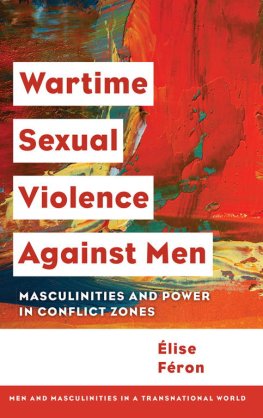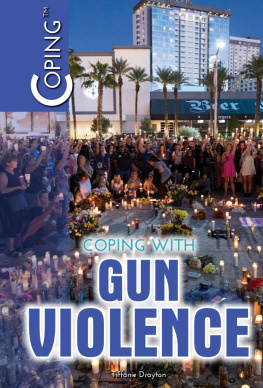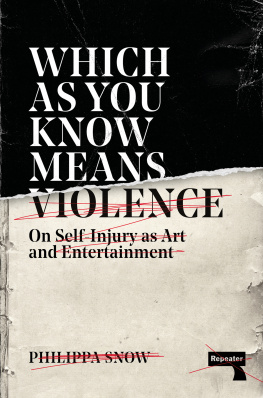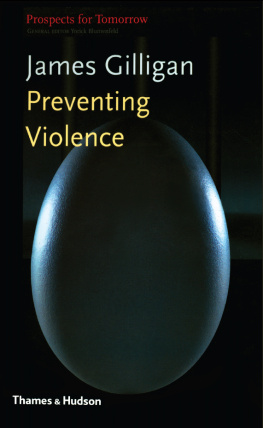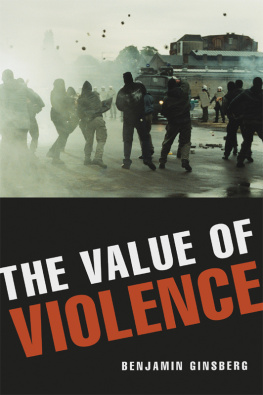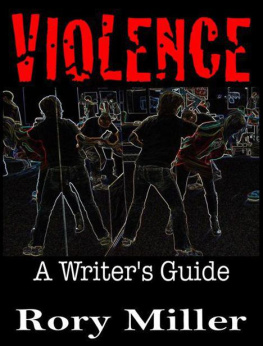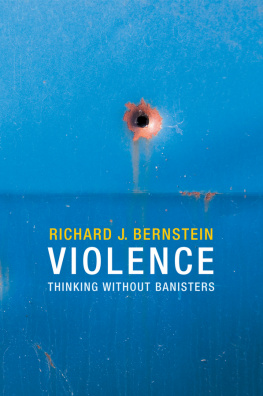Virtuous Violence
What motivates violence? How can good and compassionate people hurt and kill others or themselves? Why are people much more likely to kill or assault people they know well, rather than strangers? This provocative and radical book shows that people mostly commit violence because they genuinely feel that it is the morally right thing to do. In perpetrators minds, violence may be the morally necessary and proper way to regulate social relationships according to cultural precepts, precedents, and prototypes. These moral motivations apply equally to the violence of the heroes of the Iliad , to parents smacking their child, and to many modern murders and everyday acts of violence. Virtuous Violence presents a wide-ranging exploration of violence across different cultures and historical eras, demonstrating how people feel obligated to violently create, sustain, end, and honor social relationships in order to make them right, according to morally motivated cultural ideals.
ALAN PAGE FISKE is Professor in the Department of Anthropology at the University of California, Los Angeles, where he has also served as Director of the Behavior Evolution and Culture Center, and Director of the Culture, Brain, and Development Center. He has worked abroad for eight years as a Peace Corps Volunteer, World Health Organization consultant, and Peace Corps Country Director as well as conducting ethnographic fieldwork. He is widely known for his relational models theory, the only comprehensive, integrated theory of human sociality, which has been tested and applied in numerous studies by hundreds of researchers.
TAGE SHAKTI RAI is a Postdoctoral Research Fellow with the Ford Center for Global Citizenship in the Kellogg School of Management at Northwestern University. He is known for developing relationship regulation theory, which argues that morality cannot be understood independently of sociality, and that diversity in moral judgments and behaviors is driven by patterns in the social relationships within which they occur.
With its wealth of eye-opening ethnographic and historical comparisons and its contrarian but well-argued analyses, this book is a fascinating exploration of violence and a major contribution to our understanding of the human condition.
Steven Pinker
Its so hard for us to think clearly about violence because acts of violence trigger such strong moral condemnation. Fiske and Rai strip the moralism out of our own minds and put it where it belongs in the minds of the perpetrators, who usually think their acts are justified. This astonishing book offers a unified approach to understanding the most ghastly events, from street crime and honor killings through war crimes and genocide. This book is essential reading for anyone who wants to understand and ultimately reduce violence.
Jonathan Haidt
NYU Stern School of Business and author of The Righteous Mind
Its not possible to have a clear understanding of the past, present or future of war, terrorism and torture without knowing the basic message of Virtuous Violence .
Richard E. Nisbett
Distinguished University Professor, University of Michigan
In our preferred world of liberal democracy, tolerance of diversity and distributive justice, violence especially extreme forms of mass bloodshed are generally considered pathological or evil expressions of human nature gone awry, or a collateral result of good intentions. Not so, argue Fiske and Rai, in this deeply reasoned and well-documented survey of violence, universally considered by its perpetrators to be mostly a matter of moral virtue. Virtuous Violence aims to explain the emotions and intentions that give rise to various kinds of human violence by understanding its generation in both our species-wide and culture-specific moral psychology, which is geared to regulate social life. Building on earlier ground-breaking work on the fundamental forms of social relationships in all cultures, the authors show that the most sustained and consequential forms of human violence across history and cultures result from beliefs that it is right and necessary to hurt and suffer harm, and to die and kill, to protect and foster those relationships. Through compelling analyses ranging from primeval forms of human sacrifice to contemporary torture, ancient wars to medieval jousts, contact sports to gang fights, violent revolutions to suicide terrorism and mass murder, Virtuous Violence lays bare the moral motives for murderous passions, as a sort of evolutionary impetus to manage the interpersonal and intergroup interactions upon which societies depend, often aided by gods, spirits and abstract causes to which no creature but man is subject. Happily, however, the authors also show that violence isnt always necessary to keep things in line, so that modern prescriptions for non-violence within and between societies increasingly have a chance, provided they are grounded in understanding social facts rather than in wishful thinking or pure reason.
Scott Atran
Directeur de Recherche, Anthropologie, CNRS / Ecole Normale Suprieure, Paris and author of In Gods We Trust and Talking to the Enemy
A provocative tour through the (long) world history of violence. You wont think about violence and its many manifestations or read a newspaper the same way again.
Dov Cohen
Professor, University of Illinois
We have all watched movies where violent actions occur as part and consequence of social relations, and where the art of the movie consists of letting the audience share exactly the same emotions and motives that make that violence inevitable and feel right. At the same time, the mainstream social psychological arguments rarely pick up on these motives. This book provides a powerful argument in favor of scientifically considering these causes of violence. It is a scientifically important book, which touches on many issues we are concerned about as citizens, and will surely attract much attention and discussion as well as hopefully influencing future work in the social and behavioral sciences on this topic.
Thomas Schubert
University of Oslo
The authors of this exciting book convincingly show that most individuals and groups engage in violence believing that what they do is right, moral and even obligatory. This well-written book shows the great challenge of preventing such righteous violence, and provides the knowledge base to engage with this challenge.
Ervin Staub
Author of The Roots of Evit, The Psychology of Good and Evil and Overcoming Evil .
Virtuous Violence
Hurting and Killing to Create, Sustain, End, and Honor Social Relationships
The social-relational, moral motivational psychology, cultural anthropology and history of war, torture, genocide, animal and human sacrifice, obedience to gods, religious self-torture, homicide, robbery, intimate partner conflict, rape, suicide and self-harm, corporal and capital punishment, trial by ordeal and combat, policing, initiation, castration, fighting for status, contact sports and martial arts, honor, the Iliad and the Trojan War, injurious mortuary rites, and homicidal mourning
Alan Page Fiske
Tage Shakti Rai
University Printing House, Cambridge CB2 8BS, United Kingdom
Cambridge University Press is part of the University of Cambridge.
It furthers the Universitys mission by disseminating knowledge in the pursuit of education, learning and research at the highest international levels of excellence.


